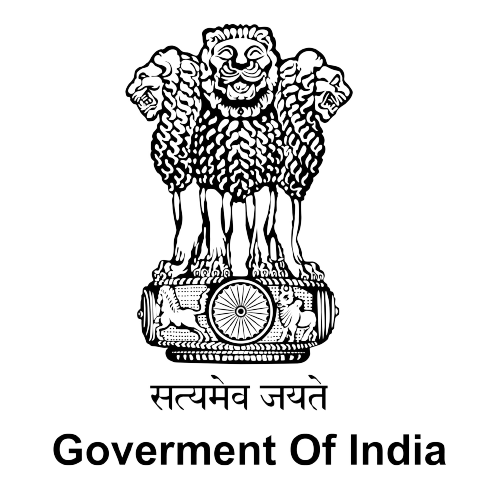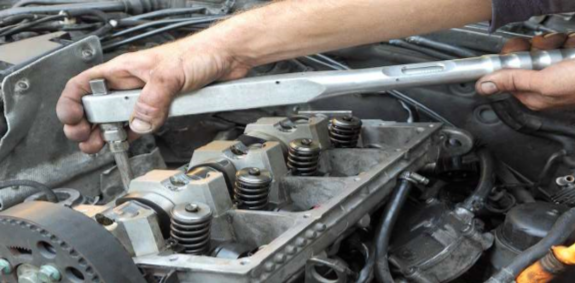

Mechanic Motor Vehicle is a vocational trade. The vehicle propulsion is offered by an engine or motor, usually an internal combustion engine or an electric motor, or some combination of the two, such as hybrid electric vehicles and plug-in hybrids. Various topics likes as servicing, transmission, brakes, steering work, basic electrical and electronic work; fault diagnosis in petrol/diesel engines including MPFI engine, repairing and major overhauling of motor vehicle like Scooter/Motor Cycle, Cars, Trucks and Buses; maintain all types of vehicles by work of suspensions, engine fitted with turbocharger, engine scanning, car A/C system and different relay operations covers in the course syllabus. After successful completion in this trade candidates can work in reputed workshop/Service Centre, Automobile Manufacturers, Automobile Auxiliary units and Government Transport corporations.
| Duration | 2 years |
| Type | ITI Diploma |
| Eligibility | 10th |

(Duration: Two Years)
NSQF LEVEL- 5

During the two years duration, a candidate is trained on subjects- Professional Skill, Professional Knowledge, Engineering Drawing, Workshop Calculation & Science and Employability Skills. In addition to this, a candidate is entrusted to make/do project work and Extra Curricular Activities to build up confidence. The practical skills are imparted in simple to complex manner & simultaneously theory subject is taught in the same fashion to apply cognitive knowledge while executing task. The broad components covered under Professional Skill subject are as below:
First Year:- This year will cover the safety aspect in general and specific to the trade, identification of tools & equipment, raw materials used. The trainee will perform Measuring & marking by using various Measuring & Marking tools. The trainee will be able to plan and perform basic fastening and fitting operations. Familiarize with basics of electricity, test and measure the electrical parameter. Skilling practice on maintenance of batteries being done. Practice making various welding joints by using Arc and gas welding. Trace and identify various hydraulics and pneumatics components and identify components in Air and Hydraulic Brake system. Identify various types of vehicle.
The candidate will be able to perform practice on dismantling Diesel Engine of LMV as per given standard procedures. Able to achieve skill on Overhauling of Cylinder Head , valve train , Piston, connecting rod assembly, crankshaft, flywheel and mounting flanges, spigot and bearings, camshaft etc. practice reassembling all parts of engine in correct sequence as per workshop manual. Perform testing on engine. Also the trainee practice on repair and maintenance of Cooling, lubrication, Intake & Exhaust system of Engine. Perform maintenance of diesel fuel system, FIP, Governor and monitor emission of vehicle. Practice on repair, maintenance and overhaul of Starter, alternator and perform Execute troubleshooting in engine of LMV/HMV.
Second Year:- In the second year, the trainee will learn to perform overhauling of light vehicle/Heavy Vehicle transmission units including Gear box, Single plate clutch assembly, Diaphragm clutch assembly , Constant mesh Gear box, synchromesh gear box, gear linkages, Propeller shaft, Universal Slip Joint, Rear axle assembly, Differential assembly. The trainee will perform overhauling of light vehicle Chassis units, adhering to the specifications and tolerances for the vehicle and the manufacturer’s approved overhauling methods, Standard repair methods, health and safety requirements etc. the trainee will learn how to overhaul, repair and service Shackle, Leaf spring, Front axle, Front and rear suspension, Steering Gearbox- worm and roller type, Steering Gearbox- Reticulating ball type, Master cylinder, Tandem Master cylinder, Front and rear brake, Wheel cylinder , Vacuum booster, Air servo unit, Air tank (reservoir) etc. The trainee will also learn to carry out wheel balancing and Wheel Alignment to within acceptable limits.
The trainer will troubleshoot vehicle Engine components and ascertain repair. Plan & service Electronic Control Unit and check functionality. Diagnose & rectify the defects in vehicle to ensure functionality of vehicle. The trainees will carry out overhauling of charging system. Also the trainee will perform overhauling of starting system. Troubleshoot electrical components of vehicle and ascertain repair. Overhaul, service and testing Vehicle Air Conditioning system, its parts and check functionality. The trainer will also learn to drive vehicle following Traffic Regulations and maintenance of good road conduct.
| Sr No. | Course Element | National Training Hours |
|---|---|---|
| 1 | Professional Skill (Trade Practical) | 2158 |
| 2 | Professional Knowledge (Trade Theory) | 504 |
| 3 | Workshop Calculation & Science | 168 |
| 4 | Trade Engineering Drawing | 252 |
| 5 | Employability Skills | 110 |
| 6 | Library & Extracurricular Activities | 168 |
| 7 | Project Work | 320 |
| 8 | Revision & Examination | 480 |
| Total | 4160 |
Distribution of training on Hourly basis: (Indicative only)
| Total Hours/Week | Trade Practical | Trade Theory | Work shop Cal. &Sc. | Engg. Drawing | Employability Skills | Extracurricular Activity |
|---|---|---|---|---|---|---|
| 40 Hours | 25 Hours | 6 Hours | 2 Hours | 3 Hours | 2 Hours | 2 Hours |
For the purposes of determining the overall result, weightage of 100% is applied for six months and one year duration courses and 50% weightage is applied to each examination for two years courses. The minimum pass percent for Practical is 60% & minimum pass percent for Theory subjects 40%.
Mechanic Motor Vehicle: Repairs overhauls and services motor vehicles to keep them in good running condition.
Examines vehicle to ascertain nature and location of defects either by running engine or driving vehicle on road. Dismantles partially or completely defective unit or parts of vehicle such as engine, gear box, rear axle, front axle, steering assembly, radiator, etc. according to nature of repairs to be done, using hoist, jack, pullers, hand tools and other devices.
Measures essential parts like cylinder, bores piston, sizes crank pins etc. using gauges, micrometer and other precision tools and gets cylinders rebored, liners filled, valve seats refaced, bearings replaced etc. as necessary.
Repairs or overhauls and assembles engine such as replacing defective parts, scrapping bearings, setting timing, cleaning injectors, tuning carburetor, MPFI and CRDI Engines etc. according to maker's specification. Replaces or repairs defective parts of gear box, rear axle, steering mechanism etc. and sets them right ensuring correct alignment, clearance, meshing of gears, specified movements and operations. Relines and builds brakes, sets wheel alignment, adjust, steering, clutch, hand brakes etc fits new or repaired accessories and body parts, makes electrical connection, and performs other tasks to effect repairs. Lubricates joints, tightens loose parts, tests performance of vehicle by driving on road and makes necessary adjustments to attain desired standard. Trouble shooting and rectification of engine, chassis, and auxiliary system. State the importance of Motor vehicle act and rules Plan and organize assigned work and detect & resolve issues during execution.
Demonstrate possible solutions and agree tasks within the team. Communicate with required clarity and understand technical English. Sensitive to environment, self-learning and productivity
| Paper Code | Subject Name |
|---|---|
| 1 | Professional Skill (Trade Practical) |
| 2 | Professional Knowledge (Trade Theory) |
| 3 | Workshop Calculation & Science |
| 4 | Trade Engineering Drawing |
| 5 | Employability Skills |